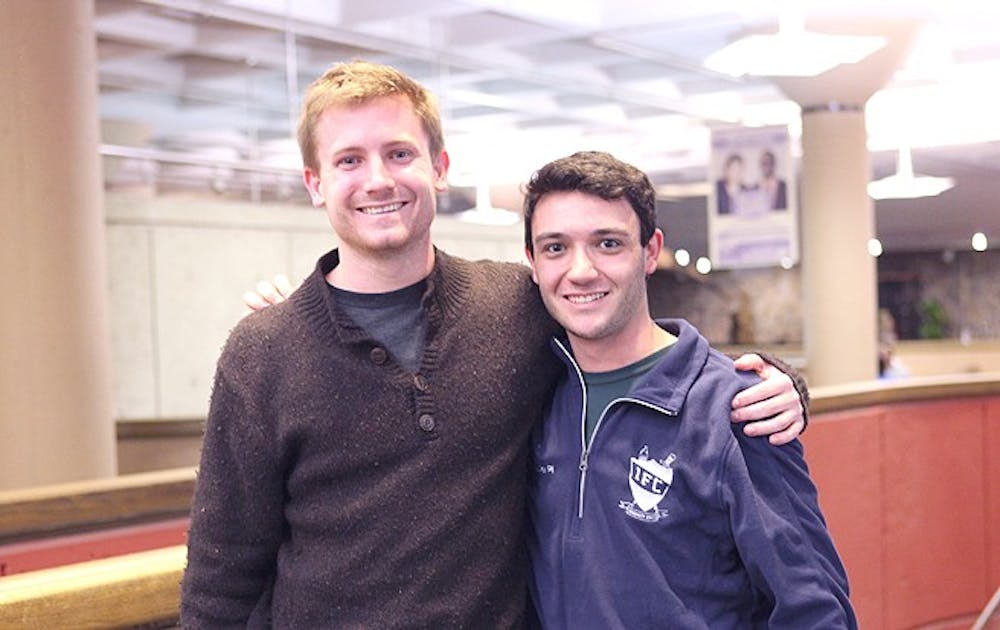In the wake of the Kappa Sigma fraternity’s “Asia Prime” party controversy, members of the newly instated Interfraternity Council are making plans to prevent problems in the future.
A change in IFC leadership was made Jan. 28, just three days before the Kappa Sigma party, said junior Jack Riker, president of the Interfraternity Council. Kappa Sigma is not listed as a member of IFC, but the new IFC leadership is now working to learn from the controversy over the “Asia Prime” party, in addition to addressing topics such as the house model and sexual assault prevention.
IFC, in conjunction with the Inter-Greek Council, National Pan-Hellenic Council and Panhellenic Association, has had several meetings with members of the Asian American Alliance to discuss responses to the Asian-themed party. The alliance played a leading role in protests against the party which led to its national media exposure and Kappa Sigma’s suspension by the national fraternity and by Duke. The groups are drafting plans for a student-run Group Bias Incident Task Force aims to prevent and respond to future cases of group cultural bias.
“There hasn’t been much structure in the past to handle these types of situations,” said Riker, who also serves as president of Sigma Nu fraternity. “It is our goal to move forward and make sure that, with the help of other student groups and councils, we minimize and eliminate the mistakes made.”
The response is still in the works and is expected to be finalized after spring break.
Riker declined to comment on the specific nature of the plans until a later date, saying are still in progress.
Riker noted that one of his goals is to ensure that the recent incident is not brushed under the rug. Many times, there is an emphasis to cover up and move on from an embarrassing situation. Instead, he said he hopes that there are lessons and positive feedback taken away from the controversy, citing the IFC’s recent efforts to collaborate with various councils and student groups.
“The strength of IFC is the defined, very close nature of our chapters,” Riker noted. “It’s evident that people love their brothers and we want to extend this idea of unification to the rest of the councils and to the student body.”
Other documents that the IFC is currently putting together with the IGC, NPHC and Panhel include efforts to address cultural issues, said junior Ian Zhang, IGC president.
It is critical that the four councils are united in addressing such diversity issues, he added.
A lot of students may not realize that there are indeed four councils on campus, Riker said, noting that he hopes to increase general knowledge about the greek community to the rest of the students.
“We are a greek community—not just a group of different councils,” Zhang said. “When we, as a greek community, put on events that involve other Duke students, we always have to be aware of the diversity around us.”
All councils, for instance, are making sure that members are aware of gender violence through the Prevent Act Challenge Teach program, an interactive, student-facilitated training sponsored by the Women’s Center to lessen the incidence of sexual violence on campus, Riker said.
The way in which the PACT training requirements are carried out will depend upon each of the councils, Zhang noted.
Members of IFC have also been thinking about the ramifications of the house model on the greek community. The house model did cause relocation of some groups from West Campus to Central Campus, but Riker said IFC members have benefitted from the “sense of space” that the model created.
“[Housing] is no longer a rotating thing and it’s been nice to see various groups invest in and take responsibility of their space,” Riker said. “It creates a sense of belonging for each of the smaller communities on campus.”
Although IFC’s current plans are still “specific and short-term,” Riker hopes to address what some see as negative aspects of the greek life. For example, selectivity of the greek chapters can be viewed in a negative light, and IFC needs to alleviate this stigma as much as possible by becoming accessible to the rest of the student body.
“In the end, we are all Duke students,” Riker said.
Get The Chronicle straight to your inbox
Signup for our weekly newsletter. Cancel at any time.

